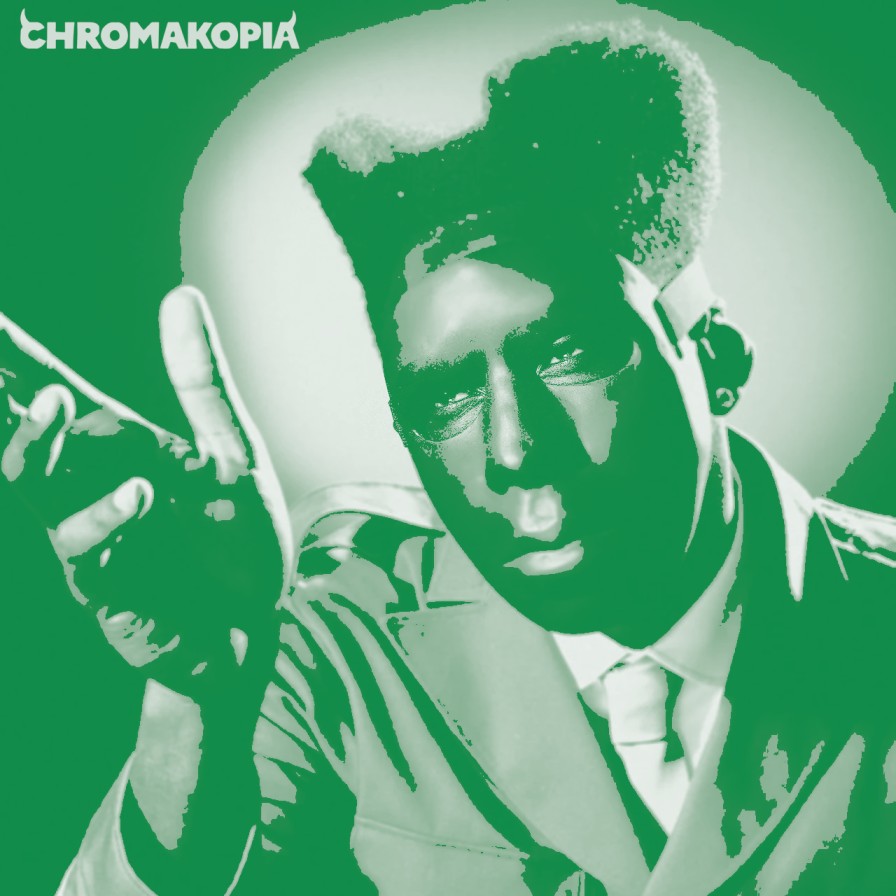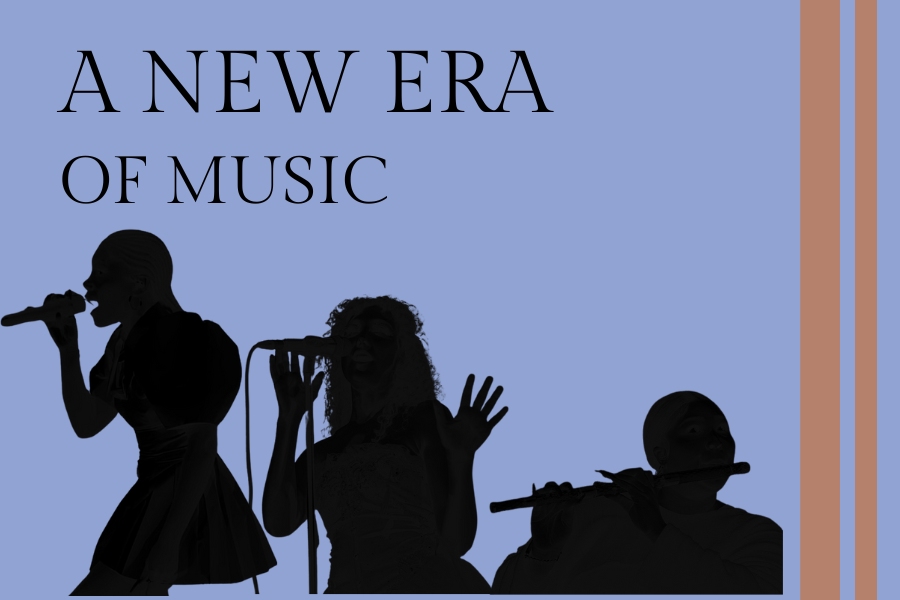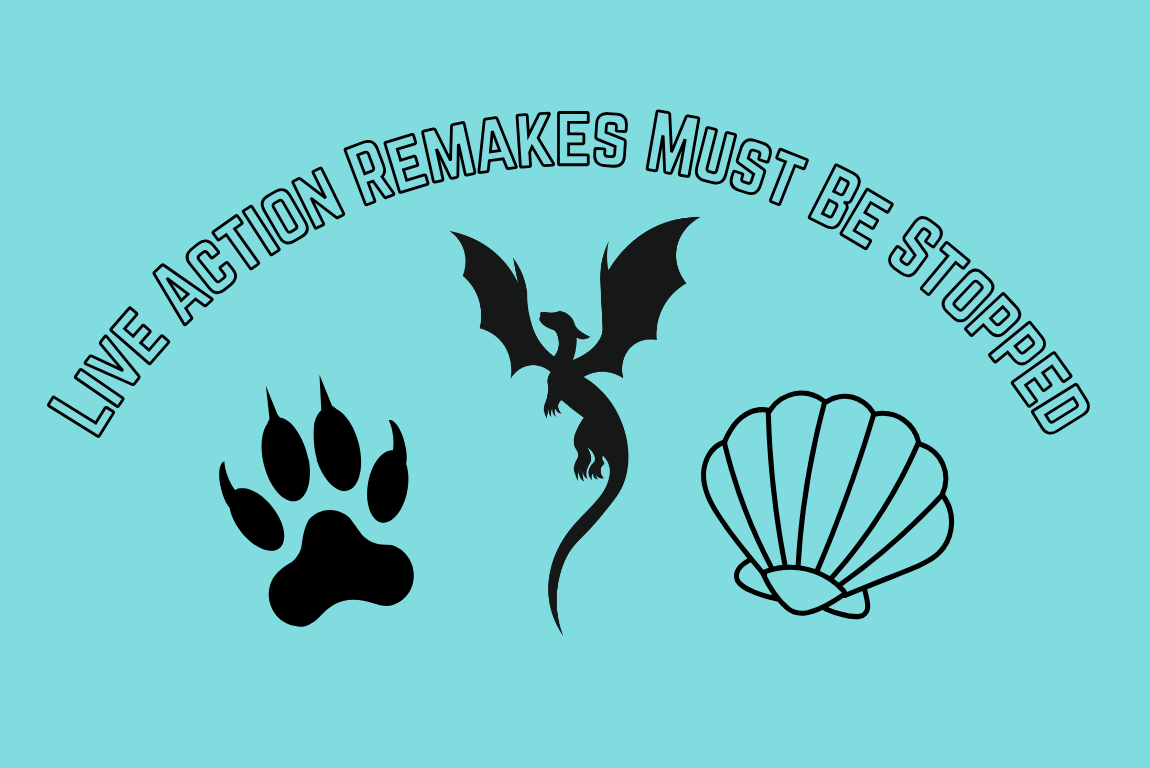CHROMAKOPIA, the seventh album from Tyler, the Creator, arrived unexpectedly on Monday, Oct. 28, just months after he announced no new music was forthcoming this year. The album’s surprise and unconventional Monday release was paired with a high-concept promo campaign that hinted at something complex and multi-layered. Over the past few weeks, Tyler posted many cryptic videos on social media for promotion, releasing snippets of his new songs. In one of the promotional videos, which begins in black and white, Tyler leads masked men into a storage trailer, which eventually blows up with an explosion of green.
Many fans assumed the album would introduce a new persona of Tyler, joining his other alter egos such as Flower Boy and Ace the Creator from his past albums. In the visuals for CHROMAKOPIA, Tyler resembles the character Chroma the Great from the children’s book The Phantom Tollbooth, a conductor of all the colors in the world, orchestrating the changing colors of the sky, sea, and nature. Even the album cover mirrors Chroma’s pose from the book, further emphasizing the idea of Tyler’s role as the master of music and creativity.
Something different about Tyler’s imitation of Chroma the Great was his hair, which resembled the Rwandan traditional haircut, Amasunzu. For men, it represented power, courage, and nobility, typically adopted with age and experience. The cultural resemblance also could be seen as a reflection of Tyler’s Nigerian ancestry. These visual clues indicate that CHROMAKOPIA serves as an exploration of Tyler’s identity as an artist who refuses to be confined or defined by anyone else.
However, while its title suggests a burst of color, CHROMAKOPIA is deeply introspective rather than being centered around this new alter ego. Tyler uses his album to explore the anxieties of early adulthood, confronting themes of identity, loneliness, and purpose. Although there are features from artists like Lil Wayne, Childish Gambino, and GloRilla, they are uncredited in the song titles, keeping the focus firmly on Tyler.
The intro track, St. Chroma, starts with intense footsteps marching and whispers, building up suspense and urgency. The continued sound of fast-paced marching footsteps and the echoing chants of “Chromakopia” create an almost ritualistic atmosphere. As the marching noises decrease, featured artist Daniel Caesar builds on the chorus, transitioning the song to a deeper level. Deep layered vocals singing “Can you feel the light, inside?/Can you feel that fire?” repeats throughout the song, creating a dramatic climax suggesting a gospel influence. This track serves as a vibrant introduction to the album full of color and vibrance, throwing the listener into Tyler’s musical world.
Followed by St. Chroma, Rat Tah Tah, provides a short but instrumentally full rap track. The fast-paced beat and the unexpected pauses in between complement the rap, making it sonically engaging. The track ends with the line “I’m paranoid now”, smoothly transitioning into his next track and lead single Noid. In Noid, Tyler rails against the pressures of fame that make him paranoid, targeting everyone from his accountants to his fans. He comments on the various aspects of fame that threaten him, saying “Triple checkin’ if I locked the door/No cameras out please, I wanna eat in peace/Ain’t respect for nothin’ voice recordin’ all discussion.” The intense and vivid sampling of the Ngozi Family’s 45,000 Volts album enhances the rap to be more catchy, making it a distinctive track on the album.
Shifting into the fourth track, Darling, I has an upbeat sound that tells the story of how Tyler keeps falling in love. However, Tyler doesn’t make the tone in the song indicate that it’s a good thing that this is happening. He repeats the lyrics “Darling, I keep falling in love,” showcasing his romantic turmoil. There are also many references in some of his past songs in this track, the main one being Bimmer, one of his most popular songs off of his 2013 album WOLF. Tyler odes to the song by saying “I drive my bimmer in the summer when I’m ready to drift,” which surprised fans because that song is considered a classic by him, as it was released over 10 years ago.
The fifth track, Hey Jane follows the story of young adults struggling with the scare of an unplanned pregnancy. The song shows the perspective of both Tyler and Jane.Tyler is trying to be more optimistic about it, while Jane is terrified about what to do and how she will go along with pregnancy precautions. Like many of the songs on the album, Tyler’s mom, Bonita, has a snippet in the beginning where she gives out a piece of advice before the real beat comes in. In this song, she says “Always always always wear protection” as a way to warn the audience of the consequences that not using it could hold, emphasizing the lesson of the song.
One of the most popular songs so far on the album is the seventh track, Judge Judy, which tells the story of how Tyler will not judge any girl that he ever gets with. Childish Gambino’s feature in the chorus and bridge elevates the song even further, adding an additional layer of depth to the narrative. He references one of his hit songs DOGTOOTH, quoting the chorus of the song multiple times. It is also very similar to DOGTOOTH, in the fact that they both talk about not judging and allowing women to express themselves.
Sticky is an extremely catchy and upbeat song that features fan-favorite artists like GloRilla, SexyRedd, Lil Wayne, Timbaland, and Young Buck. The features for this song were unexpected by fans since Tyler chose to hide the features of the songs until the second day the album was out. The fans who listened to it on the first day of release without knowing who was featured were surprised and excited to hear GloRilla, SexyRedd, and the other featured artists’ voices on the song on their first listen. The song itself has a defensive and powerful tone, which is seen when Tyler talks about how if there is any sort of conflict between Tyler and anybody, it’ll definitely be a very sticky situation.
On the ninth track, Take Your Mask Off, a piano beat and ‘80s synths are a sonic reminder of one of his older albums Flower Boy. In the track, Tyler calls out various figures for dishonesty, hiding their true self, someone struggling with their identity, and eventually turning the scrutiny on himself, speaking “You speak boldly to not even be number one.” Tyler calls out hopeful praise to anyone who feels the need to hide behind masks and suppress their individuality, repeating “I hope you find yourself/ I hope you find yourself/ Take your mask off.” The track is a perfect audio representation of a warm sunny breeze.
Like Him is one of the most emotionally moving tracks on the album, emphasized by the song’s gradual build from a simple piano to a fuller arrangement. The ending moments of the song feature a voice clip of Tyler’s mother admitting she kept Tyler away from his father, which ties back to Tyler’s career-long exploration of paternal abandonment. Like Him also features a piano melody that is reminiscent of Tyler’s earlier track Bastard, perhaps suggesting a reflection on the beginnings of his career.
The closing track, I Hope You Find Your Way Home, ends the album in an ambiguous tone. The title suggests optimism, but the lyrics leave Tyler’s mental state unresolved, “I’m slipping, I’m slipping … I need a hand.” It’s an unsettling finish for an album that began with Tyler denying his existence.
Over the course of its hour-long runtime, CHROMAKOPIA captures the journey of a man grappling with fame, relationships, and self-identity, creating an enthralling yet exhausting experience.















